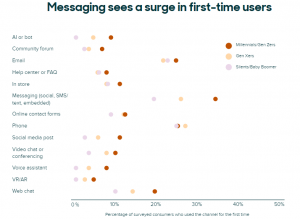— April 9, 2019
No matter how much the internet evolves, the mentality of some people stays the same.
They want their cake and to eat it too.

OpenClipart-Vectors / Pixabay
In other words:
They want the rankings, the traffic, the money, without putting in required effort to make it happen.
They use black hat SEO techniques to try to succeed.
In this article, I will cover:
- What black hat SEO is and why it is a bad idea
- Top 3 black hat methods you should avoid
- I will reveal what works
After you’ve read the article you will walk away inundated with useful and applicable knowledge, or I will eat my words 😎 .
Black Hat SEO- a Sure Way to Flush Everything Down the Drain
Though there are a myriad of different black hat SEO techniques in the big wide world of the net, they all have one thing in common.
I call it their Achilles heel because that’s what it is- they all try to trick Google and other search engines to give them higher rankings, faster.
And even though those who propagate these methods say that this is their greatest advantage, I say it is their fatal flaw and here is why:
Any website built on these methods is like a hut on shore waiting for the next tidal wave to wash it away.
Or like a birds nest perched on the highest tree and susceptible to the strongest winds (which are always blowing btw).
It is not stable and it cannot last!
Let’s Stop For a Second
Get your mind off those apt metaphors and think:
What is Google’s job?
Why do search engines exist?
To make profit from ads they serve, of course, but how do they achieve that? They do it by delivering valuable content, in other words- websites, article, blogs videos, podcasts, slides, infographics, anything that provides value for the keyword typed by the user.
Where do black hatters fit in here?
They don’t.
They manipulate the rankings and use shady tools to fool the engine into believing they offer value whereas, in fact, the are not.
Sometimes it works, sometimes it doesn’t, but black hat sites ALWAYS end in failure, that is the inevitable end-result for them.
I tell you now- Google is a company worth hundreds of billions of dollars. That value is based on the people who use the engine every day and that same value would cease to exist if blackhats had their way.
You see:
Whenever their methods gain a temporary advantage over Google, search results become flooded with low-quality and spammy websites that only try to sell to people.
And this negatively affects the users, ordinary people (like you and me), who use Google every day but who wouldn’t hesitate to switch over to Bing if they really needed to.
For the life of it Google can’t allow that to happen!
And that is way people behind the company are investing God knows how many millions every year to combat spam. And that is why if you are thinking of using blackhat SEO, my friendly advice to you is- DON’T.
You can’t Win!
- They have more men.
- They have more money.
- They have more time
You are all alone.
You can’t beat the system; so instead opposing, why don’t you join Google? There are keywords aplenty and white hat SEO can get you all the traffic you will ever need.
As for those stubborn black hatters, I ask- are they black hatters or mad hatters? Or should I say- they might clad themselves in black but they are no righteous Batman’s. 😀 .
Anyway:
I think it is important that I get my message across as early as possible:
If you want stability and prolonged success, blackhat “churn and burn” methods are not for you.
Now let’s see what they are offering and debunk it shall we, just for the fun of it, won’t we?
#1- Backlinks- The “Good”
A few years ago backlinks were the holy grail of SEO. In fact, dare I say- They were SEO.
It worked like this:
You could get a quality backlink from an authority site, for example, an article directory (where you could write your own article and point the link to your money website).
This would then give you a certain and significant boost for all keywords you were ranked under, because of your larger (because of the backlink) overall site authority.
That is the effect of one such link.
What about two?
Five?
Ten?
Twenty?
Hundred!?
That was the absolute power of backlinking.
When you think about it, the idea behind them is both brilliant and simple. If yours is a valuable piece of content, people within the same niche would naturally want to link to it.
That would be a signal, to Google(who can’t understand human language as of now) that your article has quality and that it should rank it higher.
In theory this works great, in a perfect world yes, but let’s be real.
This is what happened:
Blackhat industry started sprouting BL (backlink packages) as a ticket to instant rankings. And many purchased those hoping to make it easy for themselves.
No more SEO, no more hard work. Just fork over some money and watch your numbers explode. And since the internet is unlimited, potential for revenue is limitless and any money invested in buying backlinks en mass was sure to come back with a ten, no! a HUNDREDFOLD increase.
And it worked, for a while, it really did work. Many people made a tidy profit.
Alas, all “good” things must come to an end! 🙂
Since the SERPs were now dominated by crappy sites with horrible UX Google’s business started to suffer and… guess what happened?
A new algorithm update was released (Penguin) that targeted sites with unnatural links and extreme percentage of keyword-rich anchor text.
99.9% of those sites bit the dust never to recover. This is a prime example how, if one SEO metric is abused long enough, it turns into a bane for those using it.
I admit that I tinkered with the idea too. It seemed too good to pass up.
With my first website, I thought I would buy backlinks in the beginning so that I would rank fast and then just switch to white hat SEO to protect myself.
But now that I have more knowledge- I know better. It would’ve never worked.
Google is smart and gets smarter by the day. It can trace your footsteps and see where you’re coming from.
P.S.
Backlinks are “good”(in quotes) because in a way, they are. Natural backlinks, like when people link to you because of your great content are very good for a website.
They are still the ranking “needle movers” in SEO and an accurate measure of your site’s quality
And how well you promote your content:)
#2- Article Spinners- the “Bad”
Did you know that it is impossible to fail at content marketing?
“How come”?
You’ve probably heard the old adage” content is king”. Said a long time ago yet still true today.
If you write quality content, lots of it, and you get at least basic promotion right, over time your results will compound into a real business.
And there’ no stopping the process.
“Great, What’s the Problem Then“?
Authoring great content isn’t the easiest thing in the world. You don’t have to be a professional writer to write for the web (the only requirement really is to know your stuff and be passionate about your niche), but authoring content is still a pile of work.
It requires a lot of mental effort, focus and finally- it takes a lot of time.
Writing for your business is no small potatoes- it takes a toll on you (even if you do it on a comfy couch).
And time is what black hatters don’t have.
This is how they think: “I need a lot of content and I want it fast. If I am to succeed, I must have it! But there is no need for me to write it. The web is full of it“.
Enter the Article Spinner
This is a program that scrapes content from the web and creates new articles from it. They all say the same thing with the wordage being different.
Article spinner helps people to:
- Create an absolute tonne of content without difficulty. Then these articles are posted to various article directory’s and obscure blog networks to get easy backlinks to the money site.
- Create another tonne of content to post on for their own site/s. Having lots of fresh content and a site that is updated often is a surefire way to gain favor with Google (and all other engines). This again meant better rankings for all target keywords.
I see two major problems with this approach to content creation, and that is if we discount it being borderline criminal and highly unethical.
a) Posts “written” by any program are usually unreadable garbage
Think about it.
If Google can’t really understand human language (have you ever used Google translate?), how can some cheap program made by God knows who?
Where is this ultra genius? Why doesn’t that person work for Google? They could command any salary they wanted.
b) Google is like wine-It’s getting better with age
Earlier it couldn’t, but nowadays it can detect when an article is spun from somewhere.
I think it’s because it understands human language much better and because it already has the original in its index.
And keep in mind that, because of its repetitive nature, article spinning is heavily frowned upon by Google (hint: they hate it with passion).
Consider this:
Ten thousand spun article are actually one article reproduced ten thousand times. Where’s the added value? There is none.
It is like having a library with ten thousand books. but really just one title.
Bottom line- Black hatter would say to you “use it or lose it”- I say “use it if you’ve lost it”. 🙂
3.Keyword Stuffing- The “Ugly”
You can stuff a turkey and you can stuff a page with keywords that don’t belong there.
Don’t believe me? Ask those that use it successfully to push their rankings through the roof. Actually, I should have said- that used it to push their rankings through the roof.
Repeating a keyword hundreds of times no longer works and will get you in trouble if you try it, but for a while, it was a bullet-proof way to get ranked for anything.
In fact, by stuffing keywords, you could easily rank even for something completely unrelated to what your page is about.
For example:
Your page is about “cheap inflatable pools” but it also ranks under “hygiene products for women”.
Why? Well because there’s a keyword “hygiene products for women” tucked neatly in the code.
Sorry- but this cannot pass.
Keyword spamming creates a horrible user experience (nobody wants to visits a page where “cheap inflatable pools” is repeated two hundred times) and Google and other engines are in the right when removing these offending pages.
Now, I must say it so there’s no misunderstanding.
Keywords are still very important for ranking. And in certain niches there’s a higher threshold for keyword density.
For example, of you target a keyword “backlinks” and you write a guide on getting backlinks, then your post will naturally have dozens of keyword mentions.
It’s unavoidable, even if you make use of synonyms.
But you still need to be careful not to overdo it. I usually have my keyword in meta title, blog post title, permalink and once in content. After that, I don’t think about it at all.
If you just can’t forget about it, then keyword frequency of 1-3% is optimal.
Note. Keyword frequency of, for example, 1% means that if your article is 2000 words long then your exact match keyword should be repeated twenty times.
Let’s say you are trying to rank for the keyword phrase ” Black hat Seo technique”. If you ‘re aiming for 2% keyword density that’d be 40 times repeated ” Black hat SEO technique” throughout your 2000-word article.
And since it’s only an exact match that counts, if you wrote “Blackhat SEO techniques“, Google would see it as a different keyword and wouldn’t count it towards the 2% quota.
My advice. Don’t fret about keyword density. As long as it’s natural and not forced, you’ll do fine. That’s why you need to write for users first, engines second.
Just write for the user, write to exhaust the keyword and help your reader.
Honestly, you will not be penalized even if you have 8% keyword density as long as it makes sense and reads well.
Before I Conclude this article…
There’re much more blackhat methods that you could use to try to rank high, but these three are different.
- They are easy,
- they are cheap,
- they promise quick results
- and worst of all- they often seem to work.
You really “feel ” like they could work for you.
Trust me I felt that with buying quick and dirty backlink packages. But it can’t work it won’t work long term.
Here’s why:
Let’s say for example you devise a method that enables you to hide from Google completely. Now they can never spot you whatever you do. Have you won?
Not really. What about your competition?
You see:
If you were to use both white and black hat tactics- you’d be invincible. You’d be able to rank for about anything you wanted.
And competition? What competition!
That is not good.
Your competitors are only using white hat and they will wonder:“what’s are they doing that we’re not”?
And then they’ll investigate.
Did you know that it is very easy to check one’s backlink profile? And artificial and bought links stick out like a sore thumb.
Did you know that it is even easier to spot spun articles? It’s so because the produce sub-par content.
Did you know that the easiest thing in the world is to spot keyword spamming?
How could it not be when a keyword is repeated 300 times?
So they check up on you, and then what?
Then they report you.
And then what have you accomplished?
Conclusion- Those are the top 3 black hat SEO tactics you need to avoid, at all cost!
Your website can be the source to fund all your adventures in life. To go that far with your business, blackhat gimmicks are not the way to go.
But there is a way…
What do You Want- Fast or Long Term Results- Enter the White Hat Side of SEO
White hat SEO is something completely opposite to black hat. It’s slow and takes time to start working, but once it does- it works like a charm and long term.

Clker-Free-Vector-Images / Pixabay
Here is a handful of general tips to get you started.
Backlinks are fine as long as they’re natural. I suggest at first you focus on nofollow links that can bring you traffic, For example, answer questions on Quora (and link to your site); or post YouTube videos so people learn about you and your brand.
Then after you’ve gotten your beak wet, you can try getting “real” links with outreach, think:
- link roundups,
- broken link building,
- interviews,
- testimonials
- HARO (Help a Reporter Out)
- expert roundups…
These are all easy pickings in link building and followed links that quickly pile up.
Write quality content– the most important tip. Write for the user, not the engines. Compose engaging, provocative, interesting, informative content that leaves your readers craving more.
Add regularly. The more you feed your child the faster and bigger it’ll get. The perfect ratio is one article per day (if you want quantity); or one article per week if you insist on absolute quality (this is how I do it on my site).
Share your content on major social media/social bookmarking platforms. Google likes it, and even more when users share and reshare your stuff.
Bottom line:
White hat works- stick with it. If this is a race between a turtle and a rabbit- be the turtle!
You’ll be slow- but you’ll get there. And that big shell on your back will protect you. I don’t know if Google panda eats turtles, but I know Google bear does. 🙂
Thank you for reading. Please share if you enjoyed and learned something new.
Also, leave a comment.
Did you know about these shady blackhat techniques?
Did you use them? If yes, what was the outcome to that? I want to know.
Digital & Social Articles on Business 2 Community
(40)








